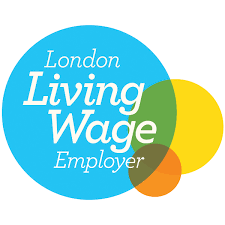
We were interested to read the results of recent research by Hitachi Capital Finance, which analysed data from its small business customers. It revealed how much stress small business owners are under, and outlined some of the reasons for this.
The online survey, of 1000 small businesses across the UK, asked business owners what issues they are worried about. One of the biggest issues - that keeps one in three small business owners awake at night - is business retention ie keeping existing customers. Closely behind this was managing cash flow.
The survey revealed that small businesses in the UK face three particular periods during the year where cashflow is tight and little business is coming in: April, July and October.
April is the beginning of a new tax year, and often brings new legislation. This year is likely to have been particularly tough for small businesses because of the introduction of the new National Living Wage, at the same time as many companies are still grappling with new pensions legislation.
July is holiday season which means a depleted workforce. This impacts both on trading and also administration such as invoice chasing. Both of these factors can impact on cash reserves.
October can also be a lean month which takes small businesses by surprise. But October is often impacted by additional investment in stock in anticipation of the seasonal increase in business caused by Christmas and possibly also Black Friday.
So when cash is tight, what do small business owners do? The Hitachi research showed that 30% of small business owners use the money in their own bank accounts to meet business goals. More than 15% dip into personal overdrafts, while almost 10% turn to family members for financial support. Other small businesses have been driven to try alternative forms of finance such as emergency business loans.
This situation has been worsened in recent years by many banks reducing or removing overdrafts from small businesses. This is to meet tightening rules over the relative amount of capital they have to hold vs the amount they promise to lend.
Small business owners are therefore trying various alternative forms of finance, including asset finance and factoring as well as small business loans to improve their cashflow situation. If you are in this position be very careful to fully investigate all the charges to ensure that you are getting a fair deal.
If faced with cashflow issues the best thing is to keep calm and look things square in the face. As we have seen above, cashflow issues are very common for small businesses so don’t be embarrassed into either trying to avoid the situation or running away from it. Instead have a good look at your figures so you know the scope of the situation then seek advice and, if necessary, an external source of finance.
At Fair Business Loans we understand the pressures of running a small business and have provided small business loans and money advice to many small businesses over the years. If you would like to talk through with us how we may be able to help you then why not contact us now and see if we can put those sleepless nights to bed!
SOURCES
http://www.telegraph.co.uk/business/sme-home/smes-face-lean-cashflow-months/




